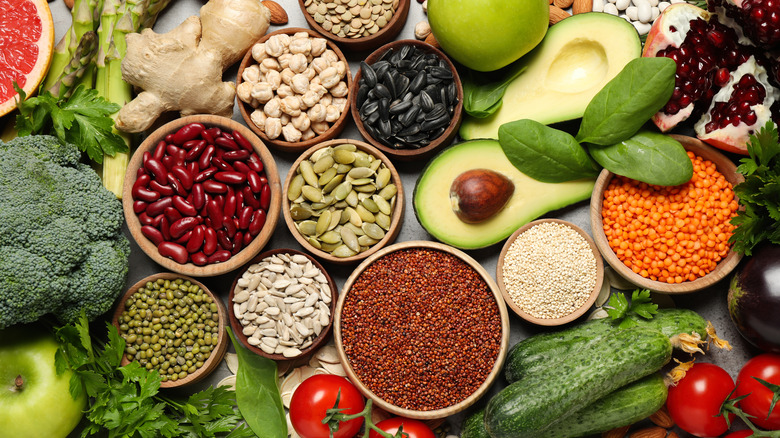Foods You Should Eat To Ease Endometriosis Inflammation
You are what you eat. An apple a day keeps the doctor away. Healthy food improves your mood. There are dozens of ways to say it, but perhaps a phrase attributed to Hippocrates, the father of modern medicine, says it best: "Let thy food be thy medicine and thy medicine be thy food" (via Science Direct). Even with our modern medical advances, numerous studies emphasize the therapeutic benefits of a balanced diet and the power of healthy nutrition.
When it comes to treating endometriosis, the Cleveland Clinic agrees that food can be medicinal. While there is not an overwhelming amount of research into diet and endometriosis, some studies suggest that what you eat can affect the severity of your symptoms. Diet alone won't cure endometriosis, but researchers have identified some foods people with endometriosis should avoid and others that can help. Here are some foods you should eat to ease endometriosis inflammation.
Veggies and omega-3s control endometriosis inflammation
A 2013 review in Reproductive Biomedicine Online suggested that eating vegetables and foods high in omega-3s may reduce endometriosis risk, while a diet high in red meat, trans fats, and coffee had a negative effect on endometriosis. But the review ultimately concluded that further studies are needed. According to Medical News Today, a diet that consists mainly of whole grains, fruits, veggies, and omega-3 fatty acids is the best for controlling endometriosis inflammation and other symptoms.
Healthy sources of omega-3s include avocados, fatty fish like salmon, olives and olive oil, and nuts. If you don't eat fish, you can take an omega-3 supplement. Fiber can also help lower estrogen levels, which affect symptoms of endometriosis. Eating fresh foods high in fiber will give your body all kinds of other beneficial vitamins, minerals, nutrients, and antioxidants that help calm inflammation. The anti-inflammatory actions of turmeric are well known, and a 2013 study in the Iranian Journal of Reproductive Medicine verified that the curcumin in turmeric inhibits endometrial cell reproduction too.
Foods to avoid include estrogen-elevating foods and substances like alcohol and caffeine to avoid aggravating symptoms (per Medical News Today). Reducing gluten may help, as a 2012 study in Europe PMC showed that 75% of 207 women studied reported less pain from endometriosis after 12 months on a gluten-free diet. Reducing red meat intake and cutting out saturated and trans fats may also help reduce endometriosis symptoms (per Healthline).


